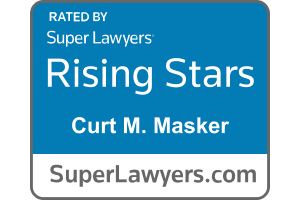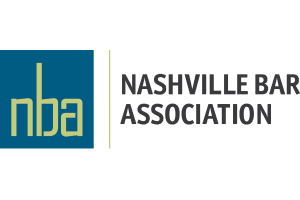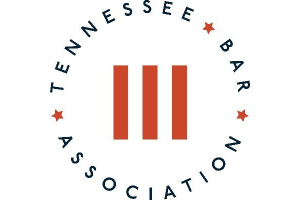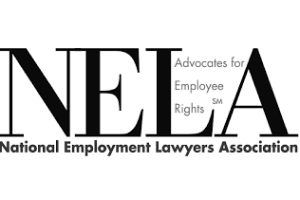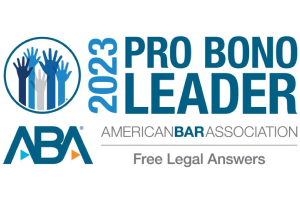for Workers
Whistleblower Lawyer
Nashville Whistleblower Lawyers
Doing what’s right takes courage. Retaliation is a very real concern for whistleblowers who want to speak out against a company’s illegal activities. Employers who retaliate against whistleblowers for raising red flags seek to instill fear in their workforces so they can continue their illegal schemes. Do not be discouraged.
Our team of Nashville whistleblower attorneys has experience handling whistleblower claims under federal and state law and can help you assert your legal rights.
Common Types of Whistleblower Claims
- Healthcare Fraud – The improper billing of Medicare and Medicaid for healthcare-related services costs taxpayers billions of dollars every year. These claims include employers billing for services not rendered, upcoding or double billing, and paying improper kickbacks for patient referrals.
- Product Safety Violations – The impact consumer products have on our day-to-day lives is staggering: cars, airbags, cell phones, baby cribs, lawn mowers, garage door openers, and so much more. The Consumer Product Safety Commission estimates that unsafe consumer products cost the U.S. over $1 trillion annually in the form of death, illnesses, injuries, and property damages.
- Securities Fraud – Securities fraud encompasses a broad array of deceptive practices related to the selling and trading of securities. Common violations involve inducing investors to purchase securities based on misrepresentations or omissions, misleading corporate disclosures, ‘pump and dump’ market manipulation schemes, and insider trading.
- Motor Vehicle Safety Violations – We as a country love cars. Because we spend so much time in our vehicles for work and leisure it’s important that they are built to exacting standards, otherwise people end up injured or worse. Defective tires, faulty ignitions, and unsafe airbags are just a few examples of unsafe consumer products.
Federal Whistleblower Laws
Employees are often in the best position to bring forward nonpublic information concerning an employer’s illegal activities. As an incentive to do so, the federal government has created a Whistleblower Program in many U.S. industries that reward whistleblowers in the form of significant monetary compensation for taking the risk of blowing the whistle. Over 20 whistleblower laws exist, some of which are discussed below. These laws are complex and you need to speak with an experienced Nashville whistleblower lawyer to understand your legal rights.
- False Claims Act (FCA) – The False Claims Act is a federal law designed to encourage individuals with knowledge of suspected fraud to come forward and to take steps to prevent such fraud. In furtherance of this goal, the anti-retaliation provision of the FCA protects whistleblowers who raise concerns about possible fraud against the government. In return, FCA whistleblowers (“relators”) are awarded 15 to 30 percent of any recovery obtained by the government.
- Sarbanes-Oxley Act (SOX) – Section 806 of SOX prohibits publicly traded companies from retaliating against an employee who engaged in legally protected conduct (reports suspected mail, wire, bank, or securities fraud). SOX applies to companies required to register under federal securities laws and expressly includes subsidiaries, affiliates, contractors, subcontractors, and agents.
- Dodd-Frank Act – Dodd-Frank was passed in 2010 to ensure corporate accountability and compliance in response to the financial crisis that precipitated the Great Recession. The law incentivizes whistleblowers to come forward with original information related to violations of federal consumer finance, accounting, and currency fraud. Whistleblowers receive from 10 to 30 percent of any monetary recover over $1 million secured by the SEC. In addition, the law prohibits employer retaliation against a whistleblower who reports violations of laws related to consumer finance, corporate and account fraud, and currency exchanges.
- Consumer Product Safety Improvement Act (CPSIA) – The CPSIA protects employees from retaliation for reporting to their employer reasonably perceived legal violations of any law or regulation related to the manufacturing, labeling, or distribution of products. The law covers employees of consumer product manufacturers, importers, distributors, retailers, and private labelers.
- Moving Ahead for Progress in the 21st Century Act (MAP-21) – MAP-21 protects whistleblowers employed in the automobile manufacturing business, including part suppliers and dealerships, from retaliation for raising red flags concerning motor vehicle defects or violations of motor vehicle safety laws.
Unlawful Whistleblower Retaliation
Federal and state whistleblower laws also prohibit an employer from retaliating against an employee for engaging in protected activity. Unlawful workplace retaliation occurs when an employer (through a manager or supervisor) fires an employee or takes any other type of adverse action against the employee. Beyond termination, these protections also prohibit employers from taking any of the following adverse employment actions against a whistleblower:
- Laying off
- Denying overtime or promotion
- Reducing pay or hours
- Demoting
- Suspending
- Failing to rehire
- Reassignment to a less desirable position
- Isolating, ostracizing, mocking, or lying about poor performance
This list of adverse actions is not exhaustive and many additional employer actions are prohibited. Because adverse actions can be subtle or hidden within an otherwise lawful activity (such as a reduction in force), you need to speak with a Nashville whistleblower lawyer to fully understand your legal claims.
What Is “Protected Activity” Under Federal Whistleblower Laws?
Importantly, to fall under a whistleblower law’s protections, an employee must have engaged in “protected activity.” The definition of protected activity varies depending on the statute, but the general idea is that the whistleblower must have taken actions to stop perceived violations of law, including reporting the violations to a government agency. In many cases, reporting what turns out to be legal conduct may still be protected.
For example, under the False Claims Act, “protected activity” includes (1) lawful acts completed in furtherance of an action under the FCA; and (2) other efforts to stop 1 or more FCA violations. Thus, employees are protected “while they are collecting information about a possible fraud, before they have put all pieces of the fraud together.” Jones-McNamara v. Holzer Health Sys., 630 F. App’x 394, 399 (6th Cir. 2015).
What qualifies as “protected activity” is fact intensive and depends on the applicable whistleblower law. Knowing whether to risk your career to blow the whistle can be a difficult decision to make. Speaking with one of our Nashville-based whistleblower attorneys is a highly recommended first step.
Rickard Masker, PLC represent individuals in whistleblower claims in federal and state courts. Contact us today by calling the number above or online to receive a free online case review.
Damages for Whistleblower Retaliation
Legal claims under whistleblower laws may entitle you to substantial damages. If you suffered from retaliatory discharge in violation of a whistleblower law, you may be entitled to significant damages, such as back pay, interest on back pay, emotional distress and reputation damage, and your attorney’s fees and costs. Some legal claims contain no cap on compensatory damages. Thus, a successful whistleblower may recover substantial damages for workplace retaliation suffered in violation of the law.
Statute of Limitations Under Whistleblower Laws
Whistleblower laws have strict deadlines called statute of limitations. If you miss this window to file your claim then you will be barred from going to court.
Do Not Wait – Act Now
To qualify as a whistleblower many laws require that you be the first to report nonpublic information. Put differently, you must be the first to blow the whistle. This means any other employee who knows about the illegal activities can beat you to court. So do not wait to contact an attorney.
Contact Rickard Masker, PLC
If you have nonpublic information about your company’s potentially illegal activities, contact our skilled Nashville whistleblower lawyers at the number above or online.


